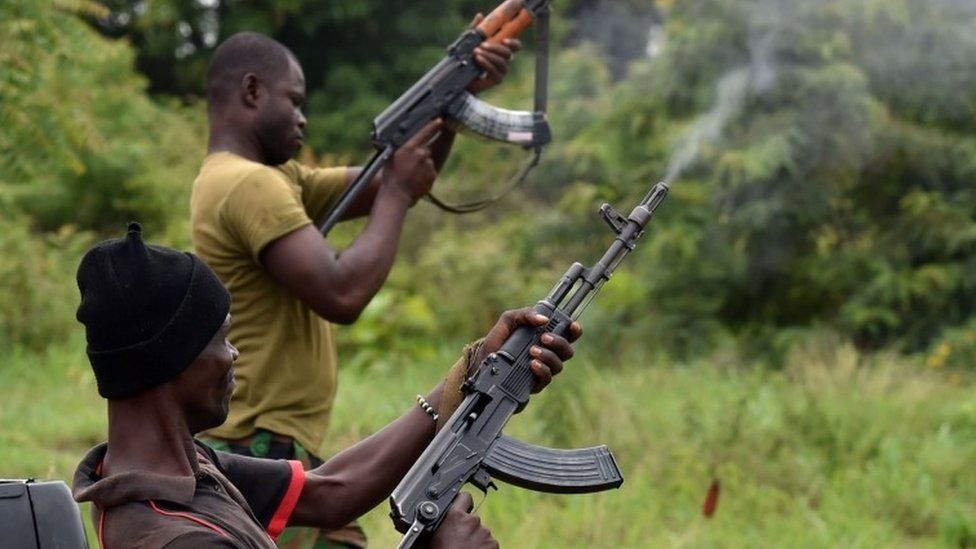Ivory Coast mutiny: What lies behind the shooting in Abidjan?
- Published

The army in Ivory Coast has been hit by a mutiny, raising fears about stability in the world's biggest cocoa producer. The BBC's Tamasin Ford in the main city, Abidjan, explains the crisis.
What is happening?
Former rebels, now embedded in the army, who had fought for years to bring President Alassane Ouattara to power have been protesting since Friday morning.
They have seized control of Bouaké, the second biggest city and launched uprisings in at least six other towns and cities across the country.
In Abidjan, the economic capital, mutinous soldiers have been firing in the air at the army headquarters in Plateau, the financial district, and in an army barracks in the suburbs.
Schools, banks and offices are closed as most people remain at home inside.
Why is it happening?
This is all about money.
Some 8,400 former rebels brought the country to a standstill in January, saying they were due back pay and bonuses for all the time they had fought, without pay, in support of Mr Ouattara.
The government agreed to pay them $15,500 (£12,000) each.
They have received their first instalment of $6,500, but not the remaining $9,500, which had been promised at the end of May.
Then in a surprise move on Thursday, a spokesman for the former rebels apologised on national television and agreed to drop their demands for the remaining money.
This was clearly news to the disgruntled soldiers, who reacted by starting their mutiny.
Could we see a new civil war?
The former rebels have publicly said they do not want to launch a coup, they just want their money.
The problem is, the government doesn't have any. Ivory Coast is the world's leading cocoa producer and the plummeting cocoa prices have hit them hard.
This, along with having to pay out the money promised to the former rebels to end the dispute in January, has left them severely strapped for cash.
Defence Minister Alain Richard Donwahi, however, says they are not willing to negotiate with the mutineers and has warned of heavy disciplinary action once this is all over.
Meanwhile, the mutinous soldiers say they are ready to fight if the army intervenes.
How worried are Ivorians?
Ivorians have lived through a 10-year civil war so they know how quickly things can escalate and and become dangerous.
This is why many Abidjan residents have stayed at home, fearful of getting caught in any gunfire. One person has been killed in Bouaké since the mutiny started.
With both sides saying they are not willing to negotiate, many are afraid of some sort of military confrontation.
The government released a statement on Sunday night saying it was launching a "military offensive to restore order" in Bouaké, though it appears to have backed off to avoid fighting.
- Published24 October 2015
- Published21 October 2015
- Published15 January 2019